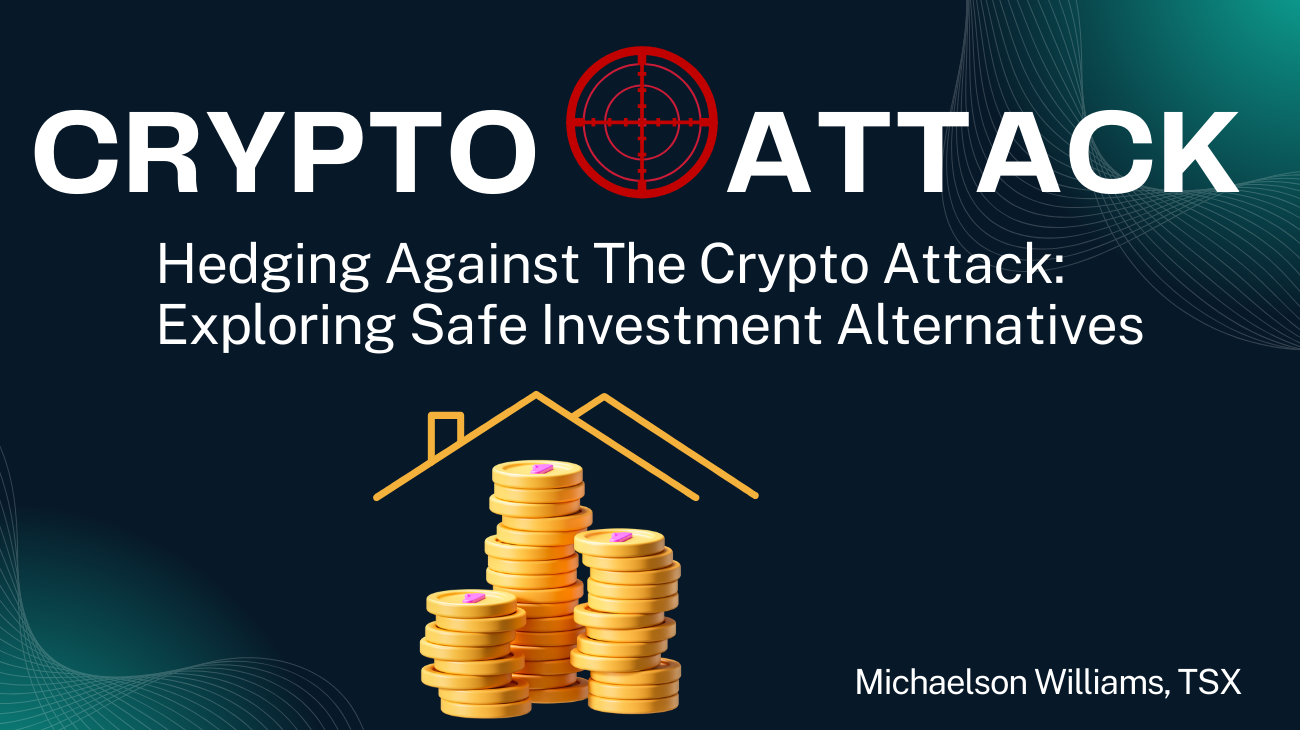Hedging Against The Crypto Attack: Exploring Safe Investment Alternatives

By: Michaelson Williams, TSX
You've heard the phrase "Don't put all your eggs in one basket," right? Of course you have. This saying has been around for ages, and while it's a simple concept, it holds special value for wise investors. Many crypto investors believe they are savvy simply because they’ve invested in crypto and subscribe to the HODL mindset, but this may not be entirely true. Since crypto has proven to make some people a lot of money, many investors see it as the ultimate investment and focus solely on it.
However, there is real danger in making crypto your entire investment portfolio while ignoring other investment options. In 2023 alone, three major crypto exchanges—Bittrex Global, Txbit, and Bitfront—went bankrupt. And surely, more will follow. Now, don't panic; when one crypto exchange falls, another often rises to take its place. But that doesn't mean some investors won't get caught in the fallout. The above-mentioned exchanges made mainstream news, but smaller exchanges are also going under. For example, the Incognito exchange succumbed to government pressure in late 2023 and was gone by early 2024.
My crypto project, Goal Phoenix Crypto Infinity, was caught in this crossfire, so I speak from firsthand experience. No crypto project is immune from government interference, not even Bitcoin. Since no one truly knows who is behind Bitcoin, it could either remain a beacon of freedom or turn into a steel bear trap for investors. Bitcoin might just be another means to control those who believe it’s invincible against government intervention. That’s why it’s not smart to put all your eggs in the Bitcoin basket either.

Smart investors understand that diversifying their financial portfolio is crucial. A diversified financial portfolio is usually a part of their long-term investment strategy. Let me clarify that holding multiple cryptocurrencies does not equal a diversified portfolio. If governments weren’t actively targeting crypto projects and exchanges, I’d say it's fine to focus solely on cryptocurrencies. But since the writing on the wall has long warned us that governments don’t want people to own crypto, investors must think about diversification.
Crypto investing is a global phenomenon, so even investors outside the U.S. should pay attention to their governments. For instance, Germany recently shut down as many as 47 crypto exchanges. Governments typically justify such actions with claims of public safety or compliance with some arbitrary laws—often created retroactively to control crypto exchanges in their jurisdiction.
KYC, or Know Your Customer, is a tool governments use to control what a crypto exchange does. KYC is a way to monitor crypto investors and enforce compliance on exchanges. It’s not a tool of freedom; it’s a method to track every cent, token, or coin an investor owns, making it easier for governments to seize assets. Throughout history, people have had to play cat and mouse with the government, always finding new ways to prevent theft by those in power.
Hedging against government overreach isn’t easy, but it is necessary. The more diversified your portfolio, the better, as long as you do your research on each investment. One way to diversify is by owning real estate. No matter where you live, you should aim to buy property. This doesn’t mean governments won’t claim your property; however, the more you "own," the better off you’ll be when they try to take some of it. Narrow thinking can result in your entire portfolio being blown away by the slightest breeze. Don’t be that person!
A solid investment portfolio should include the following elements, in no particular order:
1. Cryptocurrency – Crypto is fast-growing, and the future is digital.
2. Real Estate – Large investment groups like BlackRock, State Street, Vanguard, and Bill Gates are buying up real estate. See additional resources below for information on how to plan against it with No Money Down.
3. Gold – Gold is one of the oldest currencies, and in hard times, you can always trade it for essential resources.
4. Silver – Second to gold, silver is a smaller and safer means of trade during difficult times.
5. Some Cash – Cash doesn’t hold its value during economic downturns, so only keep enough for your immediate needs.
6. Miscellaneous Assets – Having something to barter with in a pinch is always a good idea.
Use the information in this article and the resources provided to make informed decisions about building a robust investment portfolio. Those who diversify will be closer to achieving financial success, while those who delay or refuse to adapt may fall by the wayside in the near future. Many aspects of the future are predictable if you pay attention to the signs, but you must act quickly. No one will save you—you must work diligently to secure your own future. The world is changing rapidly, so don’t wait any longer to safeguard your financial well-being.
By: Michaelson Williams, TSX
The MichaelsonEffect
CLICK HERE TO: Sample My Course Free
Resources:
Free: No Money Down MAGIC Real Estate Buyer's Guide
No Money Down Real Estate Course
BlackRock: Stealing the American Dream and a No Money Down Real Estate Solution:
The Bitcoinist Website article reference
Resources

Hello @TruSuccessXpert its been awhile that I have not been able to read your articles. Have you ever joined tangled? https://glez.tangled.com/join if you want to join you may check this out ☺️ you can earn millix on this...